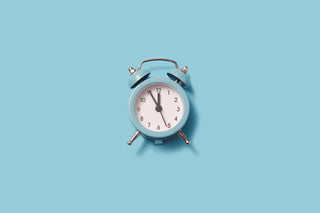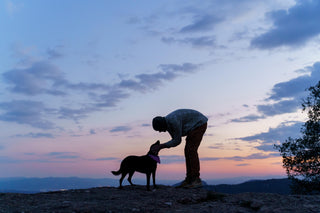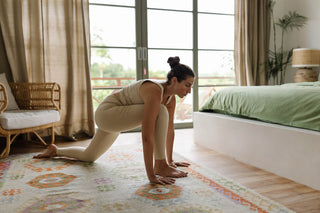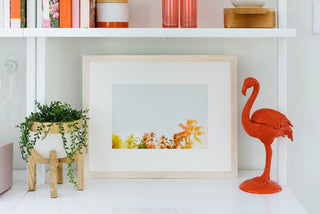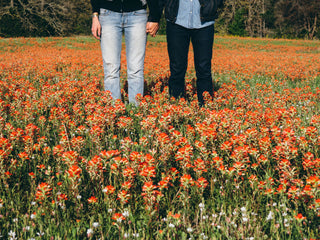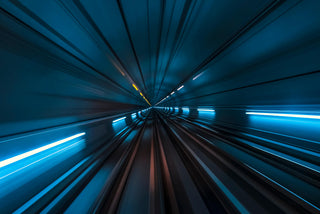You wake up before dawn, not to meditate or stretch, but to "get ahead." Three hours later, you're staring at half-completed work and a racing mind.
Then you remember storyteller and speaker Brenda Adelman's words:
"Time away isn’t indulgence. It’s perspective."
That pause… it wasn’t the plan. But everything clicked afterward.
We don’t talk enough about how rest, real rest, fuels real results.
We celebrate the late-night grind, the 6AM sprints, the weekend hustle. But no one claps for the nap. Or the slow walk. Or the full, phone-free weekend.
And yet, some of the clearest breakthroughs — in both life and business — arrive when we stop forcing them.

The myth of busy
Ken Fleisher, creator of Calm Amid Chaos: Create Extra Time in 3 Simple Steps, says the best work often starts when you step away:
"Sometimes I need to just take a walk, or pick up the guitar and play for a few minutes. It’s not about escaping work — it’s about letting my brain breathe. That’s when the solutions show up. Like in the shower."
We’ve been sold this idea that pushing through is noble. But the truth is, pushing through fatigue rarely leads to clarity. More often, it leads to half-baked ideas and rework later.
Research backs this up: a study from the University of Illinois found that even brief diversions from a task dramatically improve focus and performance. When we give our brains a moment to step back, we come back sharper, not slower.
Rest, but make it intentional
Brenda Adelman isn’t the only one who swears by real rest.
Alegre Ramos, creator of Seize the Day with Self-Care, reframes self-care as health care:
"Making my bed. Stretching. Reading a book for five minutes. These small rituals help me sleep better, focus better, and ultimately — work better."
These aren’t throwaway habits. They are consistent cues to the body and mind that it’s safe to relax, which, in turn, helps us return to our work more engaged and clear-headed.
According to the American Psychological Association, chronic stress without adequate recovery diminishes productivity and decision-making. What we dismiss as "taking a break" is actually one of the most neurologically supportive things we can do.
A quiet corner and a cup of something warm. A phone flipped face-down. A lunch enjoyed without multi-tasking. These moments seem small, but they are the foundation of creative, sustainable work.

The boundaries that build sustainability
Rest doesn’t just happen. It’s designed.
Donna Davis, creator of Run Strong for Life, draws a hard line around her time:
"I don’t answer messages after work hours. It’s not that things aren’t important — it’s that I am."
Ruth Douglas, creator of 3 Sentence Business Story Formula, holds weekends like sacred ground:
"I don’t work weekends. That space is sacred. My brain needs the pause."
Marla "Mac" McAlpine, creator of Human Design Quickstart Guide, adds:
"If you don’t sleep, if you don’t take breaks, you’re no good the next day. You’re less creative. Less clear. Rest makes you better."
These aren’t just personal preferences. They are commitments to long-term energy and creative stamina.
And their impact is measurable. In a recent Slack workplace survey, 70% of employees reported that setting clearer boundaries made them more effective at work. Clarity doesn’t just happen in the inbox — it happens in recovery.
The breakthroughs inside the pause
Ken found clarity mid-walk. Alegre returned from a self-styled "bizcation" with a sharper plan than before she left.
There’s something about stepping outside of the usual rhythm that lets our minds connect the dots we’ve been missing.
You don’t need a mountain retreat or a silent weekend to experience this. Sometimes all it takes is a few minutes of stillness. A slow cup of tea. A moment without the compulsion to produce.
Harvard Business Review found that those who incorporate intentional breaks into their day are not only more productive but significantly more creative and better at decision-making under pressure. Turns out, stepping away can be one of the most strategic moves you make all week.

How to start (small)
This isn’t about changing everything. It’s about changing something.
- You might block off 30 minutes for a tech-free walk.
- You might decide not to check your email past 6PM.
- You might even skip one thing this week — just to see what happens.
Try creating a shutdown ritual — something that marks the end of your workday, even if it’s just a deep breath, a notebook closed, and the hum of silence.
The habit doesn’t have to be big to be powerful. It just has to be yours.
Final thought
You’re allowed to build a business that protects your energy. You’re allowed to pause, even when others are sprinting.
And yes — you can thrive not by squeezing more hours out of the day, but by reclaiming a few back for yourself.
Rest is a kind of reverence. For your body. Your mind. Your next great idea.
And that’s something worth honoring.

